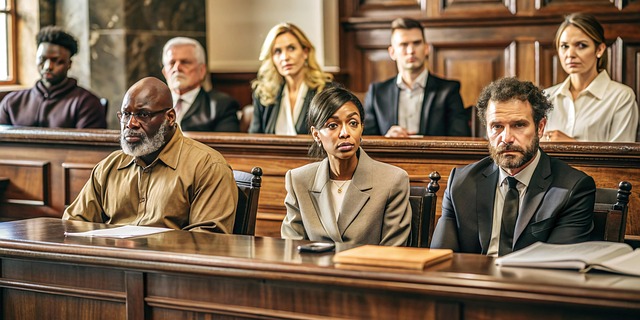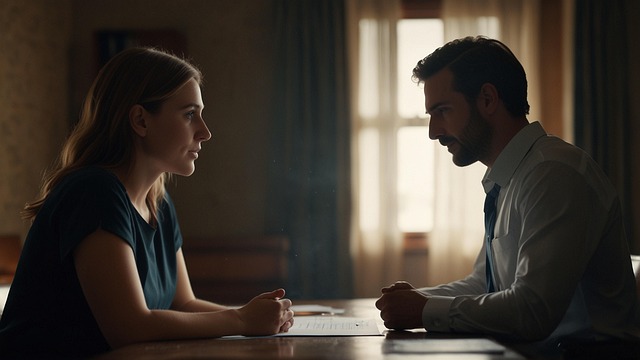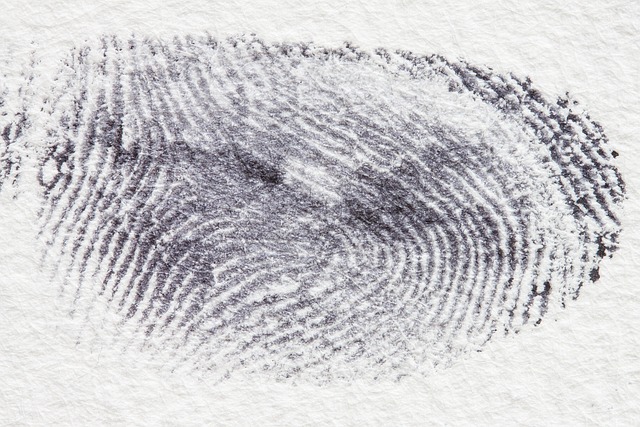Criminal justice defense is a critical pillar of any just legal system, focusing on protecting individuals facing criminal charges by ensuring fair trials and competent legal representation. It involves challenging prosecution cases, safeguarding rights through evidence evaluation, witness cross-examination, and strategic legal argumentation. Experienced lawyers play an indispensable role, leveraging their deep knowledge of procedures and case law to navigate complex systems. They construct robust defenses by scrutinizing evidence, employing experts, understanding legal loopholes, and strategically timing objections. Success in this field hinges on experience, which ensures meticulous attention to detail and promotes fairness, ultimately securing justice for clients.
“In the intricate landscape of criminal justice, understanding defense strategies is paramount. This article delves into the core principles of criminal defense, highlighting the pivotal role an experienced lawyer plays in complex cases. From evidence handling to challenging accusations, we explore effective tactics and legal loopholes.
‘Building a Solid Defense’ section dissects expert testimony and evidence management, while ‘Navigating Legal Loopholes’ reveals key techniques. Moreover, ‘Success Stories’ demonstrates how experience significantly influences verdicts. Armed with knowledge, individuals can better appreciate the critical nature of criminal justice defense.”
- Understanding Criminal Defense: A Foundation for Justice
- The Role of an Experienced Lawyer in Complex Cases
- Strategies and Tactics in Criminal Courtroom Proceedings
- Building a Solid Defense: Evidence Handling and Expert Testimony
- Navigating Legal Loopholes: Key Techniques to Challenge Accusations
- Success Stories: How Experience Makes a Difference in Verdicts
Understanding Criminal Defense: A Foundation for Justice

Criminal defense, a cornerstone of any just legal system, involves advocating for individuals accused of crimes. It is a complex field that requires a deep understanding of both the law and the broader social context in which it operates. The primary goal is to ensure that every person, regardless of their background or circumstances, receives a fair trial and has access to competent legal representation.
At its core, criminal justice defense hinges on challenging the prosecution’s case, protecting the rights of the accused, and navigating intricate legal procedures. This includes meticulous examination of evidence, cross-examination of witnesses, and strategic use of legal arguments. It’s about upholding the balance of power between the state and the individual, ensuring that the former does not infringe upon the latter’s constitutional rights and fair process guarantees.
The Role of an Experienced Lawyer in Complex Cases

An experienced lawyer plays a pivotal role in navigating complex criminal justice defense cases. With their profound knowledge of legal procedures, they can adeptly guide clients through intricate systems, ensuring every step is taken to protect their rights and interests. Skilled attorneys have a deep understanding of case law, which enables them to devise robust strategies that may significantly influence the outcome of the trial.
In complex criminal cases, these lawyers leverage their expertise to build strong defenses. They meticulously examine evidence, identify potential loopholes, and challenge the prosecution’s arguments with persuasive legal reasoning. Their goal is not just to meet but to exceed expectations, ensuring clients receive a fair trial and the best possible outcome.
Strategies and Tactics in Criminal Courtroom Proceedings

In the dynamic landscape of criminal justice defense, successful attorneys employ a strategic and tactical approach to courtroom proceedings. One key strategy involves meticulous preparation, where legal teams thoroughly review evidence, witness statements, and applicable laws to craft a compelling narrative that favors their client. This includes uncovering potential weaknesses in the prosecution’s case, challenging admissible evidence, and presenting alternative explanations or reasonable doubts.
Tactical mastery is another cornerstone of effective criminal defense. Lawyers strategically time their objections during testimony, aim to undermine the credibility of prosecution witnesses, and expertly navigate evidentiary rules. They also leverage jury selection processes to build a favorable panel, understanding that a well-chosen jury can significantly sway the outcome. These tactics, combined with persuasive opening and closing statements, are instrumental in presenting the client’s best possible defense within the criminal justice system.
Building a Solid Defense: Evidence Handling and Expert Testimony

In the intricate dance of criminal justice defense, building a solid case is paramount. The strategy begins with meticulous evidence handling—collecting, preserving, and presenting relevant data that supports the accused’s innocence or mitigates their guilt. This involves scrutinizing police reports, witness statements, physical evidence, and digital forensics to uncover discrepancies and weaknesses in the prosecution’s case.
Expert testimony plays a pivotal role here. Engaging seasoned experts across various fields—from forensic scientists to mental health professionals—can provide crucial insights that elude laypersons. These specialists offer impartial analyses, opining on key issues like ballistics, toxicology, or mental capacity, thereby reinforcing the defense strategy and offering a compelling narrative in court.
Navigating Legal Loopholes: Key Techniques to Challenge Accusations

In the intricate world of criminal justice defense, navigating legal loopholes is a critical skill for any seasoned lawyer. This involves meticulous scrutiny of evidence, factual inconsistencies, and procedural errors that might otherwise go unnoticed. By uncovering these nuances, defense attorneys can challenge accusations effectively, ensuring a fair trial for their clients. They employ strategies such as cross-examining witnesses to expose contradictions in their testimonies, examining the chain of custody for any breach that could compromise physical evidence, and leveraging technicalities in search warrants or arrest procedures.
A deep understanding of legal precedents and statutes is pivotal here. Defense lawyers stay abreast of recent case law, constitutional amendments, and legislative changes that might provide new avenues for challenging criminal charges. They also leverage their knowledge of procedural rules to file motions that suppress illegally obtained evidence or dismiss cases where the prosecution fails to meet its burden of proof. These techniques not only bolster the defense strategy but also maintain the integrity of the criminal justice system.
Success Stories: How Experience Makes a Difference in Verdicts

In the high-stakes world of criminal justice defense, experience can be a game-changer. Lawyers who have successfully navigated complex cases and secured favorable outcomes for their clients bring a unique perspective to the courtroom. Their understanding of legal nuances, combined with their ability to anticipate and counter prosecution arguments, is invaluable. Every detail, every procedural step, and every strategic maneuver becomes second nature after years of practice, allowing them to focus on what truly matters: achieving justice for their clients.
Success stories in criminal defense often highlight the power of experience. A seasoned attorney might uncover overlooked evidence, challenge questionable witness testimonies, or leverage legal loopholes that a less experienced colleague might miss. This doesn’t just impact verdicts; it ensures that every defendant receives robust representation, protecting their rights and increasing the likelihood of a fair trial. In a system where outcomes can significantly affect lives, experience is not merely an advantage—it’s an essential tool for navigating the complexities of criminal justice defense.






